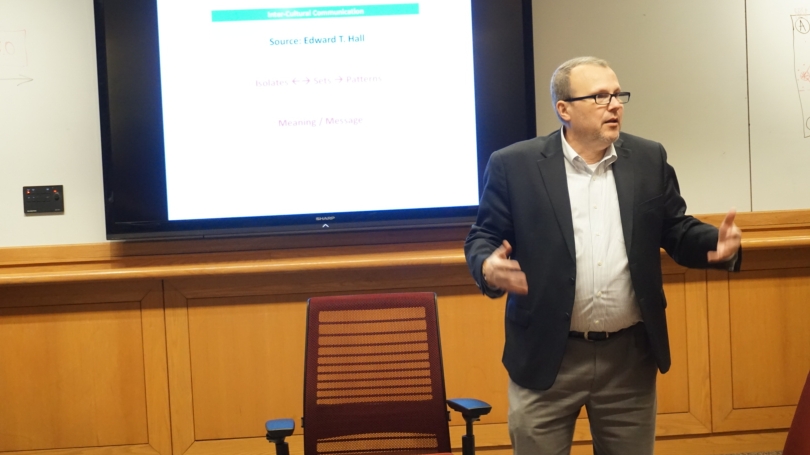
- Public Policy
- Leadership
- Funding
- News & Events
- About the Center
Back to Top Nav
Back to Top Nav
Back to Top Nav
Back to Top Nav
The most interesting RGLP session for me was Dr. Gama Perruci’s. As an avid lover of history, I find the ways in which history can inform our decisions in the present to be fascinating. This poses the question: how can history inform present day intercultural communication and leadership? Dr. Perruci walked us through the history of national identity and how that has evolved recently in our increasingly globalized world. Reconciling historical national identity with globalization is a problem that many countries around the world are wrestling with right now and has led to the rise of reactionary leaders who promise a return to a mythical, less connected past. If we are to apply the categories of cultural understanding, then these reactionaries and the people that support them are most likely in stages 1 or 2, denial and defense. Historically, the average person did not have to interact with members of different cultures, or at the very least, members of cultures drastically different than them. These centuries of isolation make a lethal combination when combined with nationalism. Nationalism, like many human cultural developments, has its place in history. Despite its modern-day association with far-right ideologies, nationalism has its origins in liberalism. Early nationalists sought to create democratic nation states and to do away with the old monarchies. However, the creation of national identity eventually required the othering of those with “different” nationalities. Nationalism is extremely harmful to intercultural leadership because it enforces the idea that nations have “essential characters” and reinforces ethnocentric worldviews. In order to build a globalized and tolerant world, national identities must be reimagined as not these “essential characters of nations” but as shared cultural backgrounds that are fluid and capable of change as all cultures are. The Westphalian system of nation states served its purpose and was an important historical event but the concept of the “nation” it created is an outdated one that is contrary to the formation of a modern, multi-cultural world.